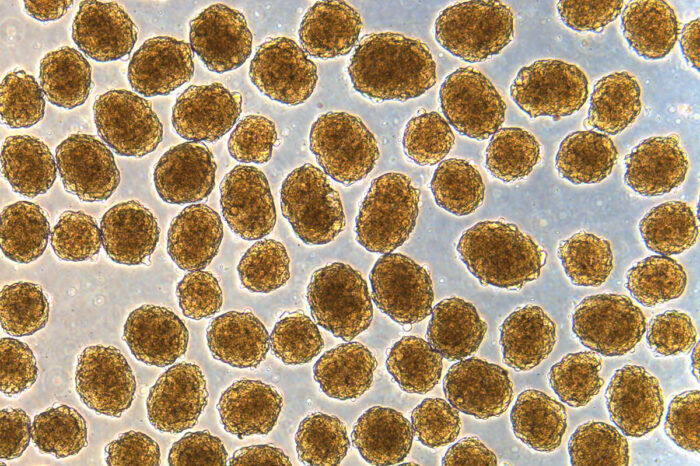
A research team at Washington Medical University reported that human stem cells were transformed into insulin-producing cells and administered to mice suffering from severe diabetes.
The team discovered a few years ago how to convert human stem cells into pancreatic beta cells. It was known that these beta cells started to secrete insulin when exposed to high blood sugar, but at the time, they did not manage to reach a place where they could control blood sugar well. According to a paper published in Nature Biotechnology, in a recent study, when mice insulin-secreting cells were administered at 500 mg per deciliter of blood sugar, blood sugar improved within 2 weeks and maintained a normal state for 9 months.
Usually, when a stem cell is converted into a specific cell type, several random factors occur and some non-purpose cells are mixed. These cells do not act, but overall they can reduce the strength of the desired role for cell mass.
For example, if one billion beta cells are needed to treat a diabetic patient, a quarter of the cells generated from stem cells become hepatocytes and other pancreatic cells. If you think about it, you need at least 1.25 billion.
Therefore, the research team worked on a new method focused on reducing the percentage of wasted cells, and produced beta cells at a higher rate so that they could function. In the past, with a completely different approach than before, it was possible to identify various proteins and tolerates and see how they would change cells. Now, we can better understand the change signals and these changes, thereby reducing the percentage of wasted cells. Description.
This new technology is said to function efficiently on stem cells from several different sources and has significantly increased the capacity for disease research. Of course, this technology still has a lot to do before clinical trials. As it is not known whether good results with rats will produce similar effects in humans, the research team is continuing research to one day save thousands of diabetics by conducting long-term trials with larger animals. Related information can be found here .

